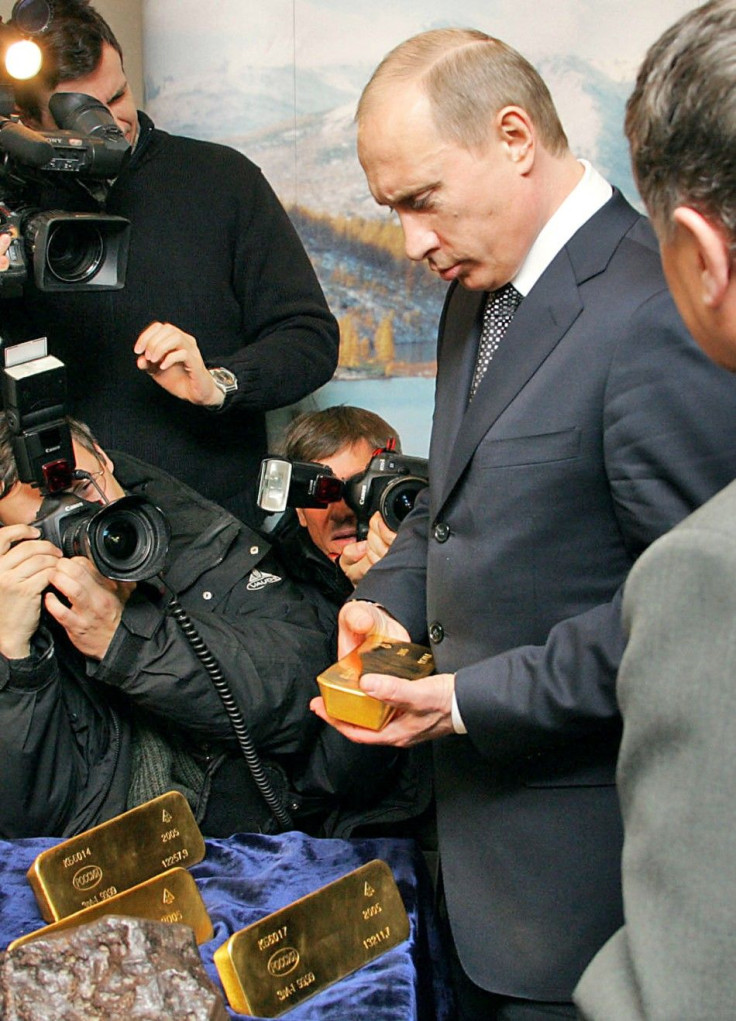Sanctions-Hit Russia Boosts Gold Reserves, Sends Prices Of Metal To 2-Wk High

Elvira Nabiullina, governor of Russia's central bank, has disclosed the country continued to boost its gold reserves in 2014. So far, a total of 150 tonnes of gold were added to current reserves. The pronouncement immediately created a stir in the market, prompting gold futures to shoot to a two-week high at $1,200 an ounce.
The International Monetary Fund said the latest figures showed an almost double jump over the country's registered purchases of 77 tonnes in 2013. It said that historically, Russia started buying gold again since the end of September, perhaps at an initial 35 tonnes.
Nabiullina, who said the bank's total foreign reserves is made up 10 percent of gold, likewise told the Russian parliament on Tuesday there is no need to place restrictions on gold exports. A number of lawmakers had proposed to put a moratorium on the exports of the safe haven yellow metal so the country would be able to secure enough gold amid the sanctions it is experiencing.
Mikhail Degtyarev, a Liberal Democratic Party member, said the proposed measure would help ensure that Russia would be able to withstand a financial crisis in the U.S. and Europe. According to the Web site of Degtyarev's party, the members believed Russia's accumulation of gold to its reserves have been slow in the past years, risking future financial stability. Bloomberg said Russia's central bank buys at least 66 to 136 metric tonnes of gold annually.
According to latest data from the World Gold Council or WGC, the Russian central bank bought 55 tonnes of gold in the third quarter of 2014. Russia "is understood to be hoarding vast quantities of gold, having tripled stocks to around 1,150 metric tonnes in the last decade. These reserves could provide the Kremlin with vital firepower to try and offset the sharp declines in the ruble," The Telegraph said. Not to mention against the highly possible long, drawn-out economic war with the Western powers.
Leonid Bershidsky, a Bloomberg View columnist, had earlier said much of Russia's gold was bought from local producers. Richard Lourie, a columnist for The Moscow Times, also believed the country's gold hoarding shows a signal of safety preparations. Nonetheless, it shows both fear and Russian toughness. "The growth of Russia's gold reserves is evidence of both the leadership's paranoia about the West and the country's resilience. Few other nations are able to extract relatively liquid foreign reserves from the ground," Bershidsky said.





















